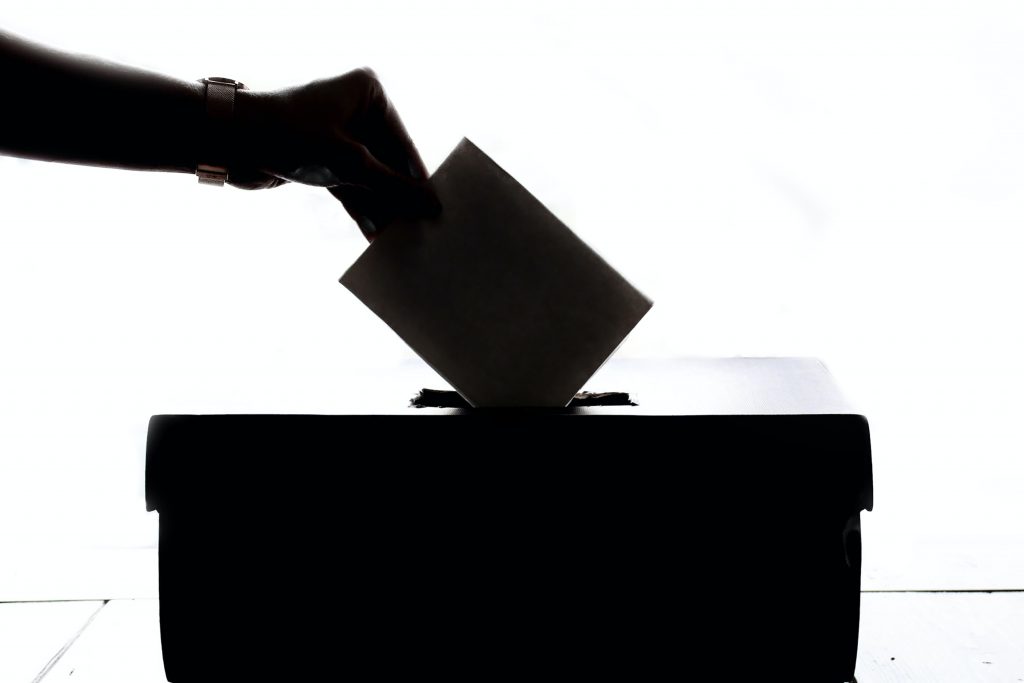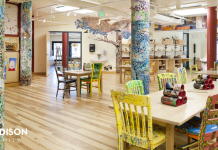 With another election season coming up, and a very divided nation, politics are bound to come up. Kids are likely to hear, at some point, people talk about politics and political issues. Plus, kids definitely notice the signs going up all over the laws in our neighborhoods.
With another election season coming up, and a very divided nation, politics are bound to come up. Kids are likely to hear, at some point, people talk about politics and political issues. Plus, kids definitely notice the signs going up all over the laws in our neighborhoods.
So, should we talk to kids about politics? I argue we should. Politics are complicated, and one problem people can have is being polarized and unaccepting of people with different viewpoints. Children between five and seven years old go through a major cognitive shift that allows them to begin taking the perspective of other people. To me, this makes it the perfect time to start discussing politics. Now, we don’t want kids to feel stressed about politics, because we want them to be comfortable talking about it and feel comfortable asking us about it. With this in mind, here are five tips to talking to kids about politics.
- Emphasize that people can have different viewpoints. By the time kids are five to seven years old, they have some basic perspective taking skills. They can use this to think about how different people might view the same issues from different perspectives. We can pick a few topics, perhaps things that kids have overheard or had interest in, and talk about some of the different perspectives. Breaking ideas down into simple components can help kids to make more sense of the complexity of the issues. Plus, understanding different perspectives will help kids to build empathy and move away from the us vs. them mentality that is so dominant in our culture.
- Focus on your values. It can help to talk about that is important to you and your family and how this connects to issues in politics. For example, if your family values helping other or values hard work, discuss how different laws might help or hinder those goals in the country at large. However, it is also helpful to mention that no one politician is going to follow every one of your values or behave exactly how you would like.
- Talk about many issues. It is important for kids (and adults) to remember that there is more than one issue that politicians need to vote on. When discussing elections it can be helpful for them to understand that you might need to prioritize different issues because no one politician is going to agree with you and your family values. Being able to acknowledge that things are complex and even adults struggle with these issues helps kids to understand that it is ok to not know everything, but that it is important to keep learning.
- If you and your spouse disagree, do so in a way that models civil discourse. It is not inherently bad to “argue” in front of kids, depending on how it is done. Yelling and creating an environment of fear is problematic. However, it is actually helpful for kids to see grown ups who disagree have a lively debate about the issues. It models that you don’t always have to agree with each other and that you can still love and/or care about someone, even if they have different opinions. This is important for kids to see so that they can understand and value tolerance of others. Also, civil discourse is lacking in our current culture, so modeling how you can debate issues without making personal attacks and name calling is a great skill to model for kids.
- Remind them that we are all human, and no one is perfect. If you do slip up and start arguing, make sure they also see you make up in a healthy way. Acknowledge that your emotions got the best of you and that you will strive to not make personal attacks next time. Another way to acknowledge that no one is perfect is to discuss how politicians make mistakes as well. Also, it is ok to change your viewpoint when you get more information, as this is a healthy way to grow as a person. Politicians may do this as well, and it is important for kids to understand that changing opinions isn’t inherently bad if there is a reason behind it.
Politics can be hard for us to discuss as adults, but if we want kids to not be afraid to discuss political issues as adults, we need to start discussing it openly when they are children. Plus, there is the added benefit that we can help kids build other skills, like empathy and perspective taking skills by having these discussions at a young age. It can be hard to help kids with something that many adults struggle with, maybe this will help them to struggle less as adults.
















